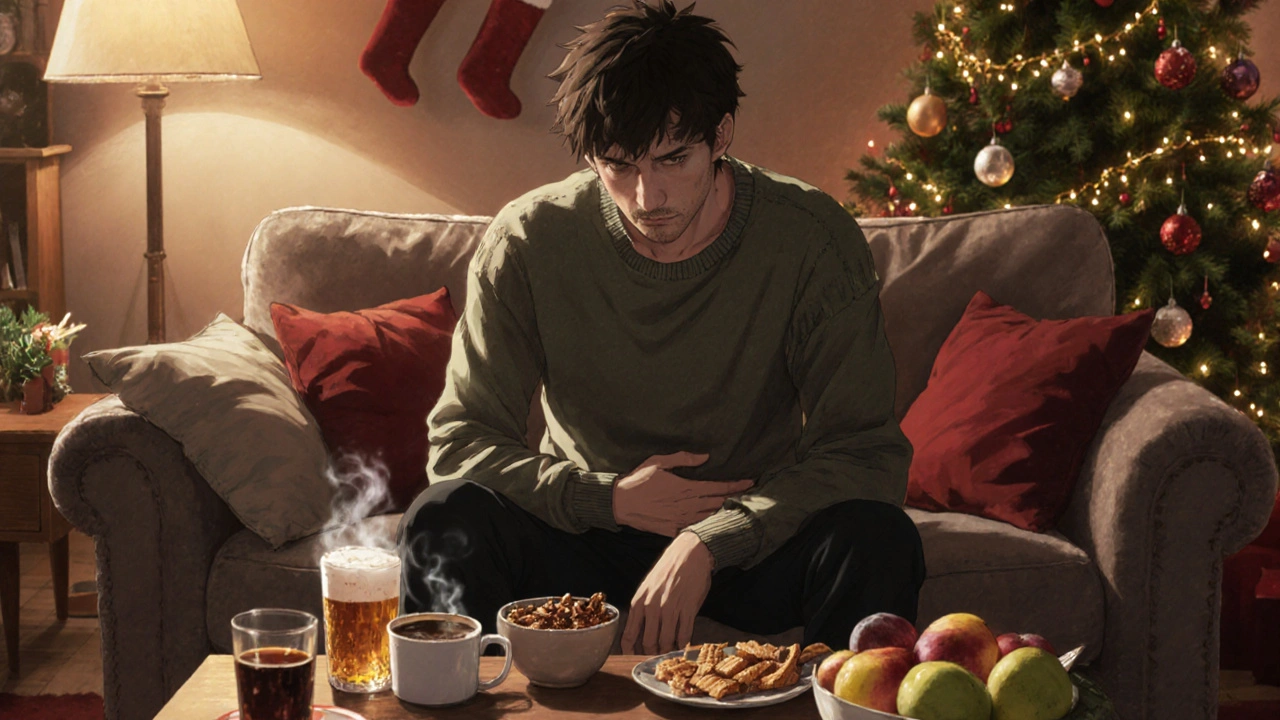
Holiday Urinary Retention Risk Checker
How Likely Are You to Experience Urinary Retention?
Answer these questions to get a personalized risk assessment of urinary retention during the holidays.
When festive gatherings leave you feeling like you can’t empty your bladder, you’re experiencing difficulty urinating, also known as urinary retention. It’s a condition where the flow of urine slows down or stops despite the urge to go.
Why the Holiday Season Can Trigger Urinary Trouble
The holidays bring extra food, more drinks, and a packed schedule. All of these factors can combine to make it harder to pee when you need to. Here are the usual suspects:
- Alcohol: Acts as a diuretic early on, then relaxes the bladder muscle, which can delay the signal to let go.
- Caffeine: Increases urine production but also irritates the bladder lining, leading to urgency followed by retention.
- Dehydration: Paradoxically, drinking a lot of salty snacks and not enough water leaves the urine concentrated, making the flow sluggish.
- Cold weather: Tight clothing and lower body temperature can cause the muscles around the urethra to spasm.
- Stress and excitement: The sympathetic nervous system fires up, tightening pelvic muscles.
- Medication side‑effects: Over‑the‑counter pain relievers, antihistamines, and some sleep aids can interfere with bladder signaling.
Immediate Self‑Help Steps You Can Try Tonight
Before you reach for a prescription, try these low‑tech fixes that work for most people.
- Warm up: Apply a warm (not hot) compress to your lower abdomen for 5‑10 minutes. Heat relaxes the sphincter and improves flow.
- Hydrate wisely: Sip warm water or herbal tea (e.g., chamomile) at a steady pace. Avoid a sudden gulp of cold drinks.
- Change position: Sit on the toilet with your feet flat on the floor, lean forward slightly, and try to relax your pelvic floor. Some find squatting on a small footstool helpful.
- Timed voiding: Set a timer for every 2-3 hours and attempt to urinate even if the urge is faint. This trains the bladder to empty more completely.
- Pelvic floor relaxation: Practice a simple breathing exercise - inhale deeply, then exhale while gently “letting go” of the muscles that you would use to stop the stream.
Holiday‑Friendly Lifestyle Tweaks
Small adjustments can keep the problem from turning into a chronic nuisance.
- Moderate alcohol: Stick to one standard drink per hour and intersperse each alcoholic beverage with a glass of water.
- Limit caffeine after 4 p.m.: Evening coffee or soda can keep the bladder over‑active when you’re trying to relax.
- Balance salty foods with electrolytes: Use low‑sodium seasoning options and pair salty snacks with fresh fruit or unsalted nuts to keep fluid balance steady.
- Stay mobile: A short stroll after a big meal helps the kidneys clear excess fluid and reduces pelvic pressure.
- Dress comfortably: Loose‑fit pants or breathable fabrics reduce external compression on the urinary tract.
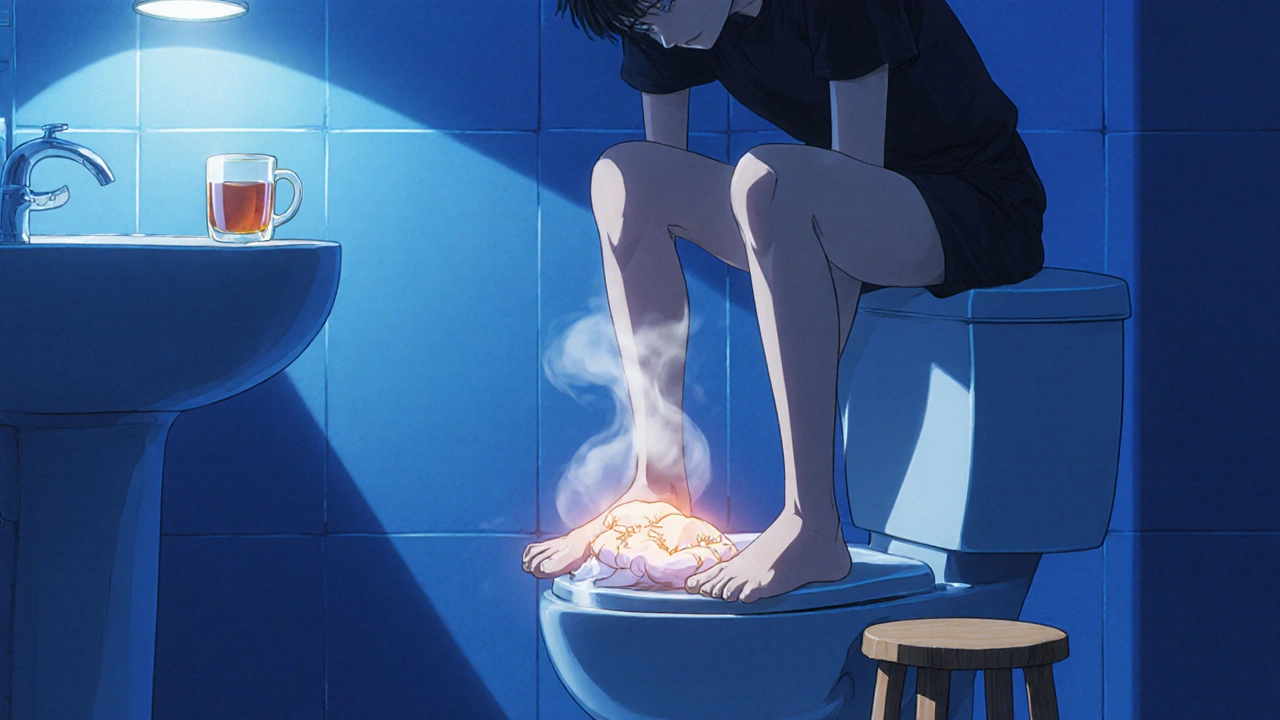
When to Call a Healthcare Professional
Most holiday‑related episodes clear up in a day or two. However, you should seek medical advice if you notice any of the following:
- Inability to pass any urine for more than 6 hours.
- Severe pain in the lower abdomen or back.
- Fever, chills, or blood in the urine.
- Repeated episodes throughout the season, especially if you have known risk factors like benign prostatic hyperplasia (BPH) or diabetes.
- Current use of prescription meds that affect bladder function (e.g., anticholinergics) and you’re unsure about interactions.
A doctor may order a simple urine analysis, an ultrasound, or a post‑void residual test to see how much urine remains after you’ve tried to empty your bladder.
Medical Options and What They Do
If lifestyle changes aren’t enough, several pharmacological paths exist.
| Medication Type | How It Helps | Typical Use |
|---|---|---|
| Alpha‑blockers (e.g., tamsulosin) | Relaxes the muscle at the base of the bladder, improving flow. | Often first‑line for BPH‑related retention. |
| 5‑alpha‑reductase inhibitors (e.g., finasteride) | Shrinks enlarged prostate tissue over months. | Long‑term management of BPH. |
| Anticholinergics (e.g., oxybutynin) | Reduces bladder over‑activity, allowing fuller emptying. | Used when urgency precedes retention. |
| Catheterization (temporary) | Physically drains the bladder when you can’t urinate. | Emergency or short‑term relief. |
Never start prescription meds without a professional’s green light. Some drugs can interact with holiday alcohol or over‑the‑counter pain relievers.
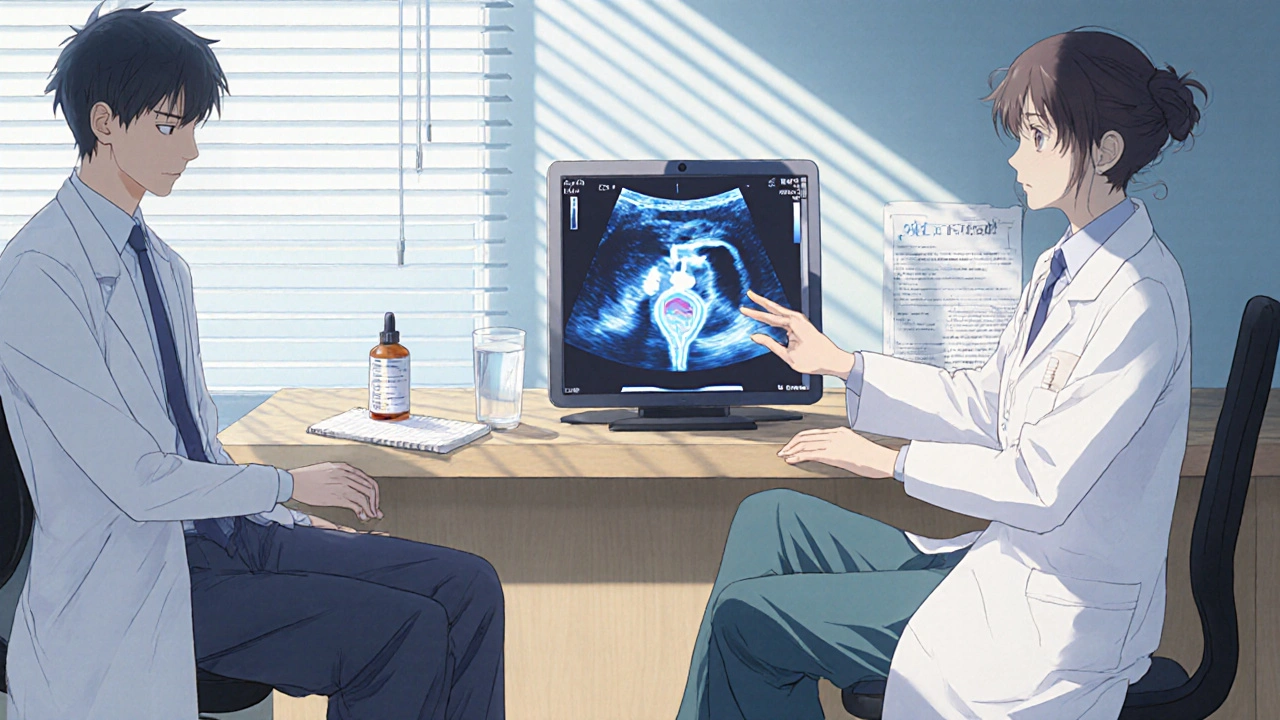
Quick Comparison: Alcohol vs. Caffeine Impact on Urinary Flow
| Factor | Alcohol | Caffeine |
|---|---|---|
| Diuretic effect | Strong initially, then reduces urine output as the body metabolizes. | Moderate, steady increase in urine volume. |
| Bladder muscle relaxation | High - can delay the urge to go. | Low - may cause spasm. |
| Typical holiday consumption pattern | Multiple drinks over a few hours. | Repeated cups of coffee/energy drinks. |
| Best management tip | Alternate each drink with water; avoid bingeing. | Switch to decaf after midday. |
Key Takeaways
- Holiday gatherings often combine alcohol, caffeine, and dehydration - the perfect storm for difficulty urinating.
- Simple heat, hydration, and posture tricks can restore flow in most short‑term cases.
- Moderate drinking, balance caffeine, and stay active to prevent episodes.
- Seek medical help if you can’t pee for several hours, feel pain, or notice blood.
- Prescription options exist, but they require a doctor’s assessment, especially when mixed with festive drinking.
Frequently Asked Questions
Can drinking more water worsen urinary retention?
Too much water in a short period can fill the bladder faster than it can empty, especially if the sphincter is already relaxed by alcohol. Sip warm water slowly rather than gulping large volumes.
Is it safe to use over‑the‑counter pain relievers like ibuprofen during the holidays?
Ibuprofen can irritate the bladder in sensitive individuals, but occasional use is generally safe. If you notice increased difficulty urinating after taking it, switch to acetaminophen and talk to a pharmacist.
How long should I wait before trying a warm compress?
Apply a warm (40‑42 °C) compress for 5‑10 minutes, then relax for a few minutes. Repeat up to three times a day until the flow improves.
What are the warning signs that require emergency care?
Severe lower‑abdominal pain, inability to pass any urine for more than six hours, fever over 38 °C (100.4 °F), or blood in the urine are red‑flag symptoms that need immediate medical attention.
Can pelvic floor exercises help during the holidays?
Yes. Gentle Kegel‑type exercises - tightening the muscles you’d use to stop urine flow for a few seconds, then releasing - improve muscle control and can reduce retention episodes when done daily.
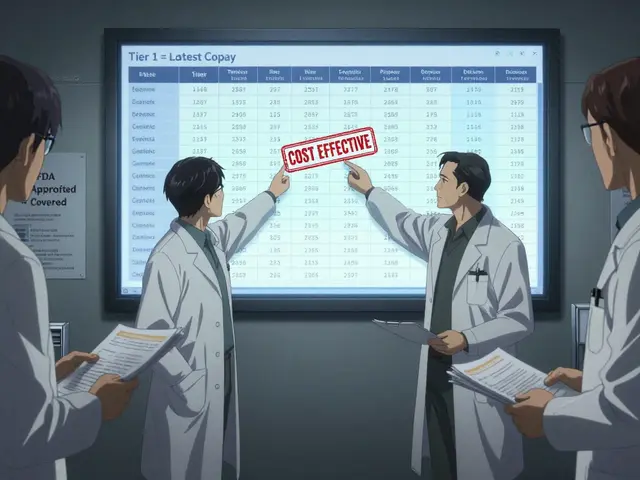
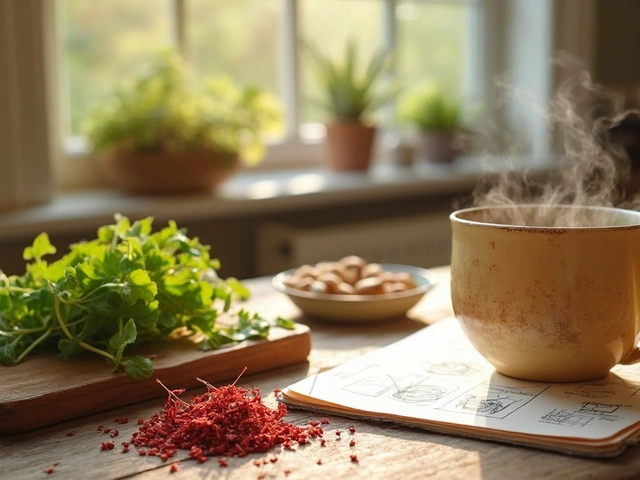
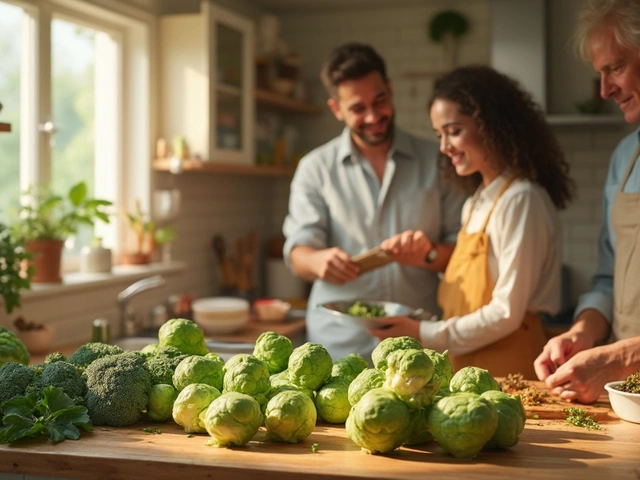

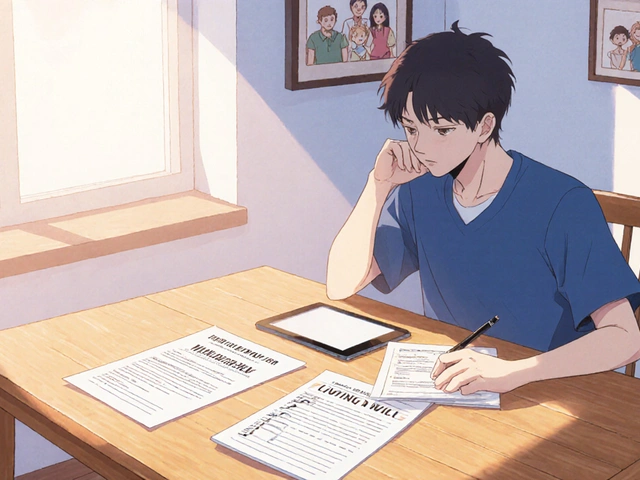
Michaela Dixon
October 23, 2025 AT 18:46The holiday season can turn a simple trip to the bathroom into a frustrating puzzle. Many people notice a sluggish stream after a night of wine and cheese. The mixture of alcohol and caffeine creates a push‑pull effect on the bladder muscles. Warm compresses work by loosening the sphincter and letting urine flow more freely. A gentle heat source placed on the lower abdomen for ten minutes can make a noticeable difference. Drinking water at a steady pace helps keep the urine dilute and the pressure consistent. Sudden gulps of cold soda can cause the muscles to contract and block the flow. Positioning matters; placing the feet flat on the floor and leaning forward opens the urethra. Some find that a small footstool mimics a squat and eases the passage. Timed voiding trains the bladder to empty regularly and prevents buildup. Pelvic floor relaxation combined with deep breathing reduces nervous tension that tightens the pelvic muscles. Slow, deliberate breaths while focusing on letting go can reset the nervous signals. Avoiding a heavy dose of ibuprofen may reduce irritation for sensitive bladders. If the problem persists for more than a day, a quick check with a pharmacist is advisable. Remember that most holiday‑related retention episodes resolve with these simple steps.
Dan Danuts
October 30, 2025 AT 23:19I love how the guide breaks things down into bite‑size actions. A warm compress is my go‑to after a big dinner and it really helps the muscles unwind. I always set a timer to remind myself to head to the bathroom even if the urge is faint. Staying active with a short walk after meals clears the kidneys and eases pressure. Keep sharing these practical hacks – they make the holidays far more enjoyable!
Dante Russello
November 7, 2025 AT 04:51Indeed, the interplay between diuretics and muscle relaxation is critical; alcohol initially spikes urine production, then dampens the signal to void, creating a lag that many experience during festivities. Caffeine, on the other hand, irritates the bladder lining, prompting urgency that can paradoxically culminate in retention if the sphincter contracts too tightly. Hydration strategy should therefore emphasize warm, steady intake rather than rapid cold gulps, which often trigger spasms. Position adjustments, such as leaning forward and supporting the feet, align the pelvic floor in a way that reduces urethral resistance. Timed voiding, coupled with deep diaphragmatic breathing, retrains neural pathways to promote a smoother emptying process. If these self‑help measures fail to restore flow within 24‑48 hours, consulting a healthcare professional is prudent to rule out underlying obstruction or infection.
James Gray
November 14, 2025 AT 10:23Yo dude, this stuff is legit helpful – I always forget to warm up my belly before trying to pee after the fam jam. Gotta remember to sip warm tea not icy soda, that stuff really messes with ur flow. Keep droppin these tips, they save us from a painful night!
Scott Ring
November 21, 2025 AT 15:55That explanation nails the science behind it, and I’ve seen the same pattern with my dad who has BPH. After a holiday party he swears by the footstool trick and the timed voiding schedule – it’s like giving his bladder a gentle reminder. Adding a few minutes of light stretching can also ease the pelvic muscles, making the whole process smoother.
Shubhi Sahni
November 28, 2025 AT 21:28Your comprehensive overview, dear author, is both enlightening and actionable; the emphasis on non‑pharmacologic interventions aligns perfectly with best practice guidelines, and the inclusion of simple home remedies empowers patients to take control of their urinary health during the festive season. Moreover, the distinction between alcohol‑induced diuresis and caffeine‑driven irritation is crucial, as many readers tend to conflate the two, leading to mismanagement of fluid intake. The recommendation to apply a warm compress for precisely five to ten minutes, followed by a period of relaxation, reflects an evidence‑based approach that mitigates sphincter spasm without resorting to invasive procedures. It is also commendable that you highlighted red‑flag symptoms warranting immediate medical attention, thereby fostering awareness of potential complications such as urinary tract infection or acute retention. In sum, this guide serves as a valuable resource for both laypersons and clinicians alike, bridging the gap between theory and practical application.
Danielle St. Marie
December 6, 2025 AT 03:00Finally, some real talk – stop binge‑drinking, your bladder will thank you! 🎉
keerthi yeligay
December 13, 2025 AT 08:32i think you r right, moderation is key, especially over the holidays.
Peter Richmond
December 20, 2025 AT 14:05Indeed, adherence to the outlined lifestyle modifications can significantly reduce the incidence of transient urinary retention during celebratory periods.
Bonnie Lin
December 27, 2025 AT 19:37Follow the steps, stay hydrated, and you’ll avoid most issues.
sara fanisha
January 4, 2026 AT 01:09Totally agree, it’s simple but effective – no need to overthink it.
Tristram Torres
January 11, 2026 AT 06:42Honestly, these tips sound like common sense, not groundbreaking advice.
Jinny Shin
January 18, 2026 AT 12:14Oh, the audacity of dismissing such vital guidance! One cannot simply brush aside the lifeline these recommendations provide amidst the revelry.